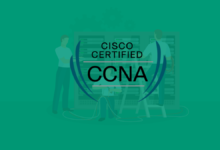Accounting Excellence for Small Enterprises: Your Roadmap to Success

Accounting is a vital aspect of any small business, yet it’s often overlooked or misunderstood. It’s not merely about managing numbers or balancing books. In fact, it is a fundamental process that can determine the success or failure of your enterprise.
For small business owners, mastering the art of accounting is not just a necessity but a powerful tool to drive growth and stability.
This article aims to explain accounting practices and provide you with a clear, actionable roadmap to manage your business finances effectively.
So, whether you are just starting out or looking to refine your existing processes, understanding solid accounting practices is key to navigating the challenges of business ownership.
Let’s get started!
The Importance of Solid Accounting
First things first, you need to understand why accounting is so vital for your small business. It’s not just about tracking what comes in and what goes out.
Effective accounting gives you a clear picture of your financial health. Furthermore, it helps in strategic planning, ensures legal compliance, and can make your business more attractive to investors or buyers. Think of it as the GPS for your financial journey. Because without it, you’re just driving blind.
Setting Up Your Accounting System
Now, let’s set up your accounting system. You don’t need to be a CPA to get this right. Start with the basics: separate your personal and business finances.
This separation is crucial for tax purposes and gives you a clearer understanding of your business’s financial standing. Next, choose a method: cash or accrual.
Cash accounting is straightforward because it involves recording transactions when money changes hands. Accrual accounting, though a bit more complex, can provide a more accurate picture of your financial position by recording income and expenses when they’re incurred, not just when money is exchanged.
Leveraging Technology and Choosing the Best Accounting Software
Today, leveraging technology is non-negotiable for business success. When it comes to accounting, the right tools can make a world of difference.
Look for the best accounting software that’s user-friendly, scalable, and offers features like invoicing, expense tracking, and financial reporting.
The right software not only simplifies your accounting process but also provides valuable insights into your business’s financial health.
Automating Your Accounting Processes
Automation is your friend. By automating routine tasks like invoicing, bill payments, and bank reconciliations, you free up valuable time to focus on growing your business.
Many accounting software options offer automation features, so take full advantage of these to increase efficiency and reduce the likelihood of errors.
Keeping Accurate Records
Bookkeeping is the day-to-day recording of your business’s transactions. While it might seem tedious, maintaining accurate and up-to-date records is essential.
It’s not just about being prepared for tax season; it’s about having a real-time snapshot of your business finances at any given moment. This clarity allows you to make informed decisions and can be a lifesaver in managing cash flow.
Staying Organized
Organization is key in accounting. Develop a system for organizing receipts, invoices, and other financial documents. This might involve digital tools or good old-fashioned filing cabinets.
Whatever system you choose, the goal is to ensure that you can easily find and access financial records when you need them.
Planning and Budgeting
Financial planning is like setting the destination in your business GPS. It involves setting financial goals and mapping out strategies to achieve them.
This could include plans for growth, investment, or even debt reduction. Regular financial planning ensures that your business stays on track and aligned with your long-term objectives.
Budgeting for Success
Budgeting is about understanding and managing your day-to-day business finances. It helps you anticipate future expenses, avoid overspending, and prepare for any financial challenges that might arise.
A well-thought-out budget keeps you in control of your finances and is a critical tool for making strategic business decisions.
Compliance and Reporting
Tax compliance can be daunting, but it’s an unavoidable aspect of running a business. Stay informed about your tax obligations, including income tax, sales tax, and employment taxes.
Consider working with a tax professional to ensure you’re meeting all your legal requirements and taking advantage of any available tax benefits.
Financial Reporting
Regular financial reporting is crucial for understanding your business’s financial performance.
These reports include profit and loss statements, balance sheets, and cash flow statements. These papers will provide insights into your business’s financial health and are essential for informed decision-making.
Wrapping It All Up
Accounting might not be the most exciting part of running a small business, but it’s undoubtedly one of the most important. You must understand the basics, know how to use technology, and plan effectively to stay on top.
And remember, good accounting practices do not just help in surviving. But they help you thrive. So, embrace your inner accountant and watch your small enterprise soar to new heights!









